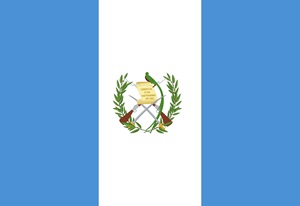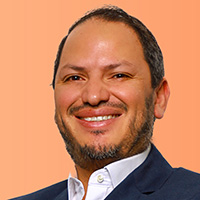
Guatemala
Anti-counterfeiting
Introduction
Intellectual property rights are protected in Guatemala by the Constitution of the Republic, the Industrial Property Law (Decree 57-2000), the Copyright Law (Decree 33-98), the Criminal Code (Decree 17-73), and diverse international treaties signed and ratified by Guatemala, such as the Agreement on Trade-Related Aspects of Intellectual Property Rights (TRIPS) and/or the free trade agreement signed by Central America and the United States. These treaties have produced amendments to the local laws.
The Constitution of the Republic establishes that the copyright is a constitutional right, as well as the right of commerce. The Industrial Property Law and the Copyright Law establish the rights and procedures that may enforce the laws for anyone with an IP asset, and the Criminal Code regulates which actions constitute a felony of violation of industrial property rights and copyright.
These laws have not received any modification in recent years, and no amendments have been proposed to these laws specifically regarding intellectual property matters.
1 . Criminal prosecution and civil enforcement
1.1. Criminal prosecution
In Guatemala, criminal prosecution is the most common way to fight against counterfeited products that are imported, produced and/or are present in the market.
The process starts with a complaint when the owner, or their representative, has information that a counterfeit product is being imported to the country, or produced or commercialized in the country. This complaint is usually filed in the Public Ministry for them to perform an investigation of the case; but it can also be filed against a judge filing all the supporting evidence.
Once the Public Ministry receives the complaint, the case is assigned to the Intellectual Property Agency, and the agent in charge starts the investigation. The investigation consists of obtaining all the legal information of both parties, to determine the rights on which the complaint is based and secure the information to investigate the infractor. After all the information is obtained, there is usually a conciliation hearing between the parties where a settlement can be reached; however, this is not mandatory. The settlement can be made at any stage of the process. If a settlement is not reached, the investigation shall continue, and the Public Ministry should request the judge’s authorization for a raid to seize the suspicious product. Once the product is seized, an original product and a seized product are sent to the National Forensic Institute, in order to be examined to see whether the product is counterfeited or not. If it is confirmed that the product is counterfeited, the Public Ministry should request the initiation of the criminal process, which starts with the first declaration of the infractor. If the judge considers there are sufficient elements to take the infractor to trial, he or she sets a term to the Public Ministry to finalize the investigation and present formal accusation. Once the term is finalized, if the judge accepts the accusation, an oral trial is ordered. In this oral trial, all arguments and evidence obtained in the investigation are presented to the judge and he or she decides if a felony was committed.
The Criminal Code establishes different types of action that can be considered infractions to IP rights, such as the counterfeiting of a product or the infringement of copyrights. Articles 274 and 275 regulate all the possible actions that may result in felonies, and they are very wide.
During the criminal process, the most important evidence to collect is the counterfeited product, since this will be used to prove that the infractor committed a felony, after comparing the original product with the seized product.
In Guatemala, the ordinary criminal courts have jurisdiction. There are no special courts for intellectual property violations. The penalties are jail time for a period of four to six years and a fine of approximately USD 7,000 up to USD 90,000.
1.2. Civil enforcement
Civil procedure is another way to enforce rights; however, this type of process is more formal, and the judges can take time to admit the suit and order measures. Unlike the criminal procedure, in which a simple complaint can be filed online, the civil complaint requires all the evidence to be filed along with the complaint, without the support of the public ministry, so this may complicate the preparation of the process and in some cases the infractors may be out of the stock in question once the judge admits the complaint and orders measures.
The civil process consists of an oral trial in which, once the complaint is admitted, an oral hearing is scheduled. As part of this hearing, the infractor must file all of their arguments and evidence to prove their defense: once the hearing is finished and all the evidence has been presented to the judge, a sentence is issued. The penalty in this type of case is economic compensation, for which damages should be proved. This type of process is known by the ordinary civil court and is the same as that used in criminal courts; there isn’t a specialized court.
Finally, the industrial property law also establishes the possibility to enact border measures; however, because of the short terms and the jurisdiction of the courts — complaints must be filed in the state where the border across which the felony was committed is located — this is practically impossible to execute. Therefore, when there is a customs case, it is usually recommended that the brand owner or representative informs the customs authority about the brands they represent, in order to inform them of any suspicious importation. It is possible to train the authorities how to distinguish counterfeited products from the original.
1.3. Grey market and counterfeit goods
In Guatemala, the grey market is immense, and unfortunately there are many counterfeited goods available which consumers believe to be original. Parallel imports are permitted.
1.4. Criminal v. civil enforcement
In conclusion, the criminal procedure is more flexible and less formal, which is why it is recommended. In anti-counterfeit actions, urgent actions are often required, and unfortunately in the civil process this is not possible to execute. Also, the investigations performed by the Public Ministry (the constitutional institution which performs criminal investigations) are of great help: the evidence has more value because it has been made by an official and objective institution in comparison to an investigation made by the interested party. Finally, infractors are more threatened when they know there is a criminal case against them.
2 . Anti-counterfeiting procedures, legislation and trends
2.1. Advancement in counterfeiting methods
Every day, counterfeiters are working to improve the quality of their copies. In Guatemala, there have been cases where it is almost impossible to determine if a product is original or fake.
One of the most helpful measures is training customs officials in how to identify products. The training is essential, because examples of the products can be shown and, when imported, pictures can be sent for the brand owner to identify if the product is original or fake. They take no decision; they just inform, so this is of great help because in many cases the brand owner has already seen the counterfeited product in other countries, and they can identify if it is original or fake. It means that brand owners don’t rely solely on the authority.
2.2. Marketing
Social networking and online markets are very active and growing in Guatemala. In many cases monitoring online marketplaces and social networking is a great way to find targets if they have a physical establishment, but often they are informal sellers, so they don’t issue an invoice or give their real name. This tends to make tracing actions more difficult and means a more formal investigation is required.
Dupe culture is increasing in Guatemala; there are several products that have almost identical designs but don’t have a brand name, or include a different brand made by a third party. Dupe culture has improved counterfeits and has given more protection to counterfeiters.
The Guatemalan legislation has not been updated in many years, so it does not have anything to protect brand owners against counterfeiters who sell in marketplaces and via social networks. In order to perform an action against online sites, you need to investigate whether they have a physical establishment and if they are formal sellers, but the complication is to establish the real identity of the owner of the profile or marketplace. The most problematic marketplaces or social networks where counterfeiters are found are Facebook Marketplace, Instagram and TikTok. There are a couple of local marketplaces that have been created recently; however, their marketing does not have the same reach as social networks.
2.3. Progress for rights holders
Recently, rights holders have become more active. This is mostly because the authority is working well and results have been obtained, especially in customs seizure cases. According to the public ministry, in the last year seizures at local establishments have increased greatly. This is due to the active participation of the brand owners, who are investing in this type of action and are aiming to recover damages and the costs of the action.
3 . New and evolving technologies and online anti-counterfeiting enforcement strategies
Currently, in Guatemala it is difficult to identify technologies used by counterfeiters: almost all of the counterfeited products are imported and most of them come from China. The counterfeits which are produced in Guatemala are usually clothes, due to the big textile industry that exists in Guatemala. However these are made in a traditional way and not with evolving technologies.
Regarding online anti-counterfeiting strategies, there isn’t any legislation or strategy to officially fight against anti-counterfeiting. Usually the brands monitor this using different software which provides the service; however, brand representatives in the country usually inform the brands of any suspicious online market that offers counterfeits.
Considering that there isn’t any official protection measure, it’s difficult to establish if there is a circumvention of protection measures or not when the counterfeits are made via traditional methods. The same situation happens with the prohibition of selling or commercializing and producing devices or services for breaking locks.
In Guatemala, there are no repercussions for third parties involved in the importation or commercialization of counterfeit goods, unless they are directly involved in the importation or in the commercialization; however, the importer or commercial entity is usually only one person or company, so the only one responsible for the felony is the person or company that imports or commercializes the product.
In Guatemala, there isn’t any legalization regarding the commercialization of counterfeited goods online. Where the online seller has a physical establishment, this definitely helps: usually the investigators make mystery purchases, obtain all the seller’s information, and then search for the physical establishment in order to obtain all the details of where the counterfeited product is sold or stored in order to initiate the process to seize the counterfeited goods. In some cases the online site may continue unless the judge orders the site to be taken down — but what is more common is that once the legal action starts, the counterfeiter usually learns their lesson and brings down the site or products voluntarily. When there is a settlement, the closure of the site is usually included in the agreement.
3.1. Domains
Regarding domain names, in Guatemala the domains are granted by Universidad del Valle. This university is responsible for the domains that end in .com.gt and .gt. In their policies, they do have a procedure to solve controversies, which is mandatory to attend if someone files a claim. Currently, there aren’t any trends relating to the registration of domain names. This is because most of the counterfeiters or non-formal businesses do not use a web page; they have moved to social networks such as Facebook, Instagram and/or TikTok, where you can find more illegal use of names as profile names. There is no current increase in websites that sell fraudulent and counterfeited products, because as mentioned before, the counterfeiters are moving to social networks.
In Guatemala, there aren’t many top-level domains (TLDs) so the counterfeiters cannot take advantage of any new TLD. It is considered that they use the usual TLDs.
3.2. Social media
With regards to social media, in Guatemala the social media platforms used are the most famous ones, like Facebook, Instagram or TikTok, but counterfeiters do use these platforms to sell counterfeited products. An important percentage of counterfeited products is sold via social media, so measures should be taken at some point, because taking down profiles or posts is a little complicated and it takes a lot of time to obtain a resolution. This is a critical issue that needs attention.
We have initiated many cases after finding counterfeited products on social media; this is an important instrument in our enforcement strategy. We usually find targets and engage with sellers to obtain information and try to obtain all the information required to file a complaint, especially if they have a physical establishment (which is very important in order to determine the quantity of counterfeited product they sell). Usually, the engagement starts with a mystery purchase, so we can receive an invoice and with that we can obtain the name of the person or company and all the addresses they have, so we can carry out visits to the different establishments and inform the brand owner.
Currently, counterfeiters are using social media freely; they are not scared or aware that they are selling fake products and that this action is considered a felony with a big fine and jail time as penalties, so we don’t see counterfeiters take any action to hide on social media. Sometimes they even get sponsorship for their post or profiles.
3.3. Artificial Intelligence (AI)
Artificial intelligence is still very new in Guatemala. Currently there aren’t any related laws and it is possible that some time will pass before any law is approved. Currently the Bar of Attorneys has not taken any actions; local associations have held some events to talk about artificial intelligence, but no official institution has taken any action.
3.4. Deepfakes
Regarding deepfakes, few cases have thus far developed in Guatemala. Most deepfakes have been made in different countries and, due to the reach of social media, have been reproduced in Guatemala.
3.5. Crypto technology
At this time, crypto is not regulated in Guatemala. The national bank issued a communication a couple of years ago, arguing that they were going to regulate cryptocurrencies, but time has passed, and the authorities have changed, so at this time it isn’t a priority.
3.6. Digital content piracy
Digital content piracy is a big issue in Guatemala. Many people consider that they are getting access to all content for a great deal, cheaper than legal platforms. They even sell hardware and software to play this content on social media. Digital content piracy is considered a felony against copyrights, so to initiate an action, a complaint must be filed and all the process explained before action can be taken.
Any measure to prevent felonies can be requested from a judge. A copyright owner, when filing a complaint, can ask for a site to be taken down. The owner should propose the method to take down the site.
4 . Border enforcement
4.1. Measures
In Guatemala, most anti-counterfeiting actions are initiated due to counterfeited products found during the importation process. As mentioned before, the Industrial Property Law of Guatemala regulates a specific procedure in which the brand owner must act within 24 hours in the court where the border is located. This is basically impossible, so this process is not applied by brand owners.
The Central American Customs Code enables the customs authorities to pause an importation when they find suspicious products. The officials inform the brand owner representative in order to verify if the product is counterfeited or original. Once this notification is received, if the brand owner identifies that the product is fake and decides to proceed, a complaint must be filed in order to stop the importation and the investigation of the Public Ministry is initiated, as was explained before.
Once the importation is suspended due to the finding of suspicious products, all the costs regarding the container are the responsibility of the importer. The costs related to the seizure are the responsibility of the Public Ministry; however, in many cases the brand owner helps with transportation of the goods when the amount of product is considerable, and it does not fit in the Public Ministry vehicle. Storage is made in the Public Ministry or the Judicial Organism warehouse; there is no cost for any of the parties. The destruction is usually paid by the importer when the parties have reached a settlement and the product has not been officially seized and it is still at the border, but if the product has already been seized, the authorities perform the destruction and there are no costs involved.
The benefit of the system is that the customs authorities inform the brand owner representative, and the communication is very fluid; however, the downside is that the process is not regulated, so there isn’t an official term during which the authorities can hold the merchandise, so there is always a risk that the importation can be liberated at any time without prior notice. Another benefit of the system is that once the brand owner confirms that they want to proceed with the complaint, this can be filed online.
The customs authority and the law enforcement authority are totally independent as they belong to different government organizations.
When the brand owner representative is notified of an importation, the authorities send pictures of the product; however, these pictures aren’t used in the process. The pictures used as evidence (which regularly aren’t used) are the pictures taken by the authority at the time of the seizure. These pictures and the importation declaration that contains the list of the imported goods and of the importer, including the latter’s address, are also provided. This is very important because from this declaration the details of the importer are obtained and used in the complaint.
The only remedy that can be taken against counterfeiters is to file a complaint to initiate the criminal process and receive the sanctions imposed by the law. However, if they commit more felonies, the penalty can be harsher. Where parties reach an agreement, the brand owners usually include a penalty clause if they commit the infraction again, which can be executed in a civil court.
For the customs actions to be effective, training for the customs officers is essential, because they become aware of the brand, and they can seek the product once they receive fresh information. It is recommended to provide training a couple of times a year.
4.2. Recent trends and COVID-19
When the pandemic started, there were a lot of counterfeited facemasks and hospital products imported; however, this is not seen frequently today. When the pandemic started, the importation of counterfeited products increased and online stores also became a new trend, many of them with counterfeited products.
5 . Additional information
Guatemala does not have a specific anti-counterfeiting body or organization; all the law enforcement is made by the ordinary law enforcement authorities in the country. This is a weakness in the system because many judges don’t have a comprehensive understanding of intellectual property and often consider it to be a minor felony, so the resolution in many cases does not make sense. It is important for the local organization to train all the law enforcement authorities, because in many cases intellectual property is not taught in the universities, so this training is essential.
7 . Other relevant updates
In Guatemala, the special agency of the Public Ministry is very active. The experience they’ve had in the past years has been very important in order for them to establish better criteria and carry out better investigations, which is essential for anti-counterfeiting actions.
8 . Relevant organisations
The relevant organizations involved in anti-counterfeiting actions are:
Public Ministry
In charge of the investigation and prosecution of a criminal claim.
Judicial Body
Includes the judges that will receive the complaints and accusations. They can be civil or criminal.
Division of Ports, Airports and Border Posts (Dipafront)
A unit of the police that is in charge of the revision of containers at borders.
National Institute of Forensic Sciences (INACIF)
A body that is in charge of examining the original product against the counterfeit product.
The Superintendency of Tax Administration (SAT)
Assist Dipafront in the revision of containers and are in charge of customs at the borders. They also inform of suspicious cases.
https://portal.sat.gob.gt/portal
Division of Criminal Investigations (DICRI)
A unit of the Public Ministry that purchases counterfeit products and investigates the businesses where the counterfeits product are sold.
3-6 PQE Corporate M&A Associate
Job location: London
Projects/Energy Associate
Job location: London
3 PQE Banking and Finance Associate, Jersey
Job location: Jersey


 Gustavo Noyola
Gustavo Noyola

